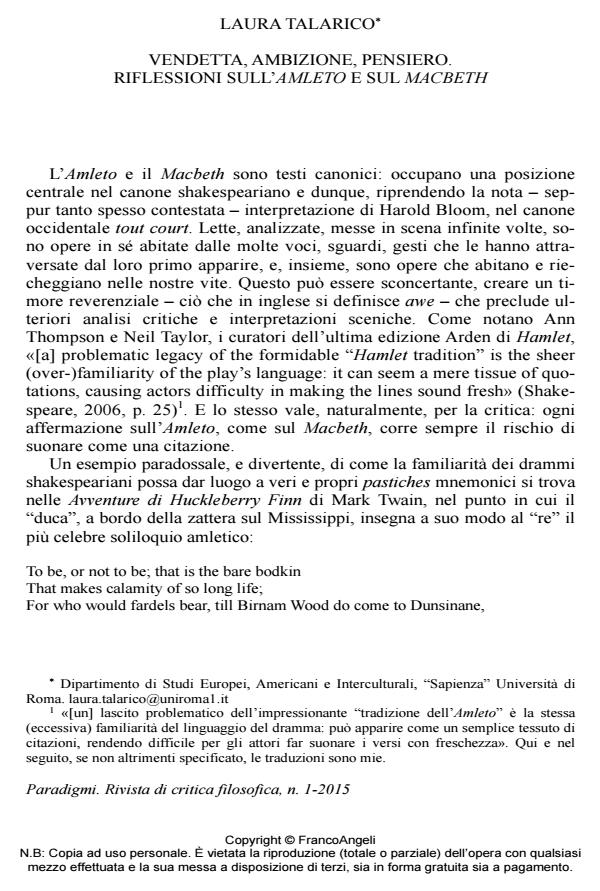Revenge, Ambition, Thought. Reflections on Hamlet and Macbeth
Journal title PARADIGMI
Author/s Laura Talarico
Publishing Year 2015 Issue 2015/1
Language Italian Pages 8 P. 13-20 File size 48 KB
DOI 10.3280/PARA2015-001002
DOI is like a bar code for intellectual property: to have more infomation
click here
Below, you can see the article first page
If you want to buy this article in PDF format, you can do it, following the instructions to buy download credits

FrancoAngeli is member of Publishers International Linking Association, Inc (PILA), a not-for-profit association which run the CrossRef service enabling links to and from online scholarly content.
The article starts from a reflection on the canonicity of Hamlet and Macbeth and on the possible inhibition of new interpretations this can cause. It then goes on to highlight some similarities between the two tragedies, which make them suitable for a joint reading. At the centre of both we find characters that have become "myths" of modernity. They moreover epitomize two fundamental types of Elizabethan and Jacobean drama, revenge tragedy and ambition tragedy, which are in fact complementary. At the same time, Hamlet and Macbeth explode these paradigms, particularly by exposing their paradoxical temporality. Finally, these plays question any pre-established pattern thanks to their protagonists’ exceptional and exceeding ability to "think". Hamlet and Macbeth thus seem to call for a contrastive and multi-perspective reading which, aware of its own limitations, may enable us to overcome the impasse mentioned at the beginning.
Keywords: Ambition, Hamlet, Macbeth, Revenge, Shakespeare, Tragedy.
Laura Talarico, Vendetta, ambizione, pensiero. Riflessioni sull’Amleto e sul Macbeth in "PARADIGMI" 1/2015, pp 13-20, DOI: 10.3280/PARA2015-001002